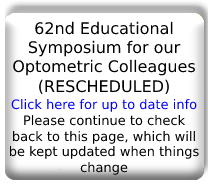Northern New Jersey Eye Institute on ZocDoc
Macular Degeneration Treatment
The macula is a part of the retina in the back of the eye that ensures that our central vision is clear and sharp. Age-related macular degeneration (AMD) occurs when the arteries that nourish the retina harden. Deprived of nutrients, the retinal tissues begin to weaken and die, causing vision loss. Patients may experience anything from a blurry, gray or distorted area to a blind spot in the center of vision.
AMD is the number-one cause of vision loss in the U.S. Macular degeneration doesn't cause total blindness because it doesn't affect the peripheral vision. Possible risk factors include genetics, age, diet, smoking and sunlight exposure. Regular eye exams are highly recommended to detect macular degeneration early and prevent permanent vision loss.
Symptoms of macular degeneration include:
- A gradual loss of ability to see objects clearly
- A gradual loss of color vision
- Distorted or blurry vision
- A dark or empty area appearing in the center of vision
There are two kinds of AMD: wet (neovascular/exudative) and dry (non-neovascular). About 10-15% of people with AMD have the wet form. "Neovascular" means "new vessels." Accordingly, wet AMD occurs when new blood vessels grow into the retina as the eye attempts to compensate for the blocked arteries. These new vessels are very fragile, and often leak blood and fluid between the layers of the retina. Not only does this leakage distort vision, but when the blood dries, scar tissue forms on the retina as well. This creates a dark spot in the patient's vision.
Dry AMD is much more common than wet AMD. Patients with this type of macular degeneration do not experience new vessel growth. Instead, symptoms include thinning of the retina, loss of retinal pigment and the formation of small, round particles inside the retina called drusen. Vision loss with dry AMD is slower and often less severe than with wet AMD.
Recent developments in ophthalmology allow doctors to treat many patients with early-stage AMD with the help of lasers and medication.

"Dr. Crane is one of less than 100 doctors in the United States to be able to bring this new technology to his patients."
"Dr. Crane is one of less than 100 doctors in the world who have been approved to participate in the iDose FDA trial"
iDose exchange
"Dr. Crane is one of less than 15 doctors in the United States to perform this procedure for his patients."
"Dr. Crane is one of less than 15 doctors in the world who were approved to participate in the iDose exchange FDA trial"
Infinite
"Dr. Crane is one of less than 15 doctors in the United States who were able to bring this new technology to his patients."
"Dr. Crane is one of less than 15 doctors who were approved to participate in the iStent Infinite FDA trial"
General
Eye Injuries From Paintball Guns, Air Guns and Other Projectile Toys
FDA issues warning for contaminated eye drops that can cause infection.
"Dr. Crane and Glaukos have a long history of working together on several medical device and pharmaceutical studies. He has been able to offer these technologies to his patients and the products from these studies have progressed to help treat hundreds of thousands of patients in need."
Employment Opportunity: Optometrist in Essex, Morris, and Union Counties
Dr. Crane Top Doctor 2019
Congratulations to Dr. Crane for being the 2nd surgeon in the United States to perform a new treatment for Glaucoma. We hope this treatment will bring further advances in the care of our glaucoma.
ASCRS Thanks Dr. Crane for Volunteer Work
Dr. Spier Named to OSN's Premier Surgeon 300
Dr. Spier: Weekend Comedian
Dionne Warwick on Dropless Surgery [VIDEO] (Surgery Performed by Dr. Spier)
Dr. Crane and Staff congratulate their patient Dr. William Scaife
Dr. Crane named to the ASCRS Council of 100
 Dr Crane meets one of his favorite Sharks, Daymond John, at a book signing!
Dr Crane meets one of his favorite Sharks, Daymond John, at a book signing!














